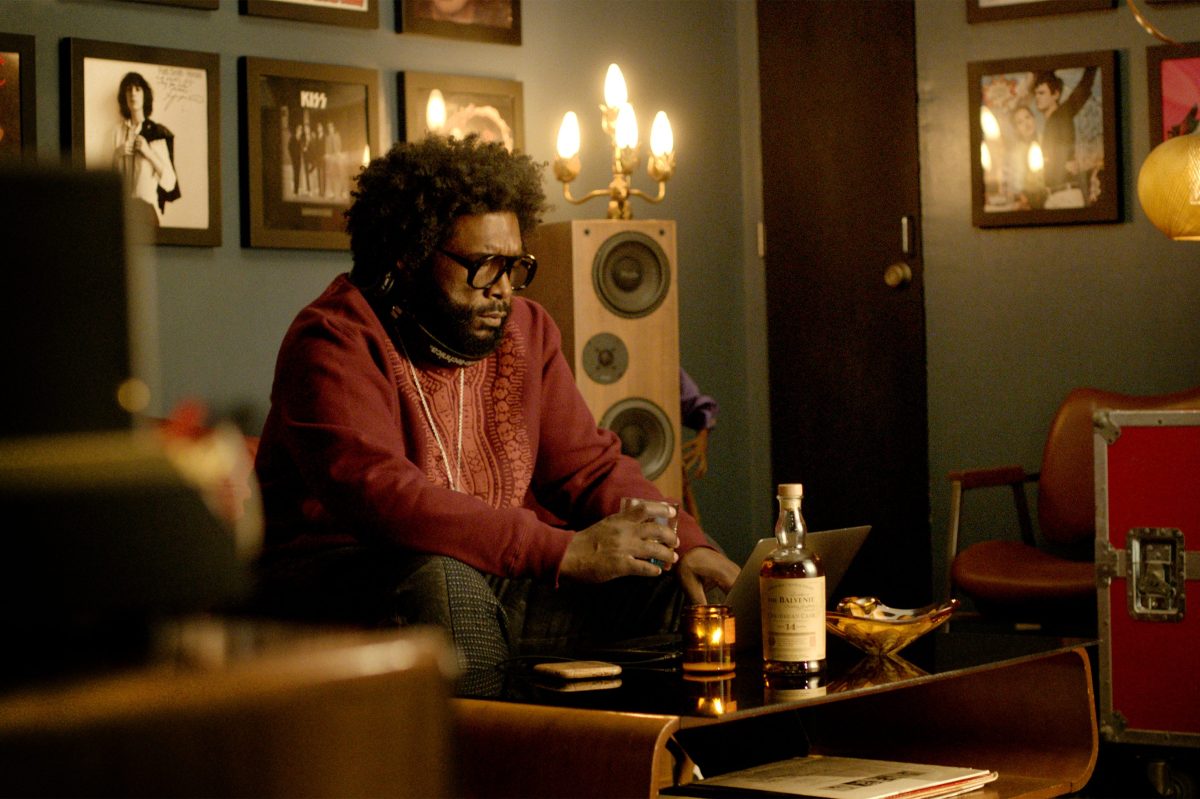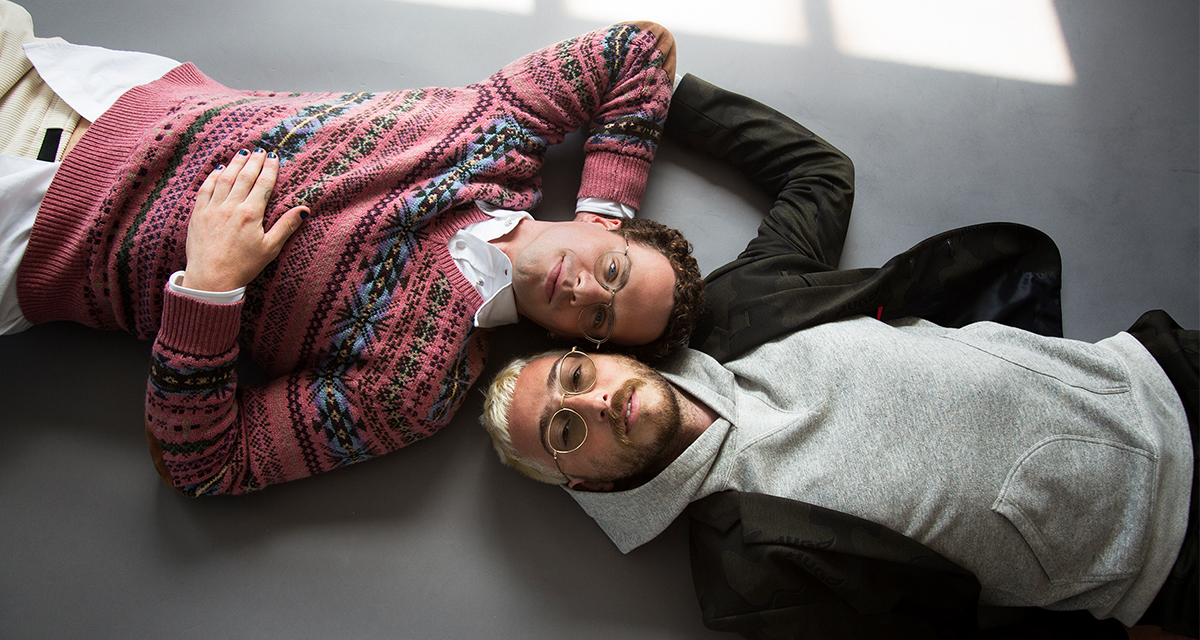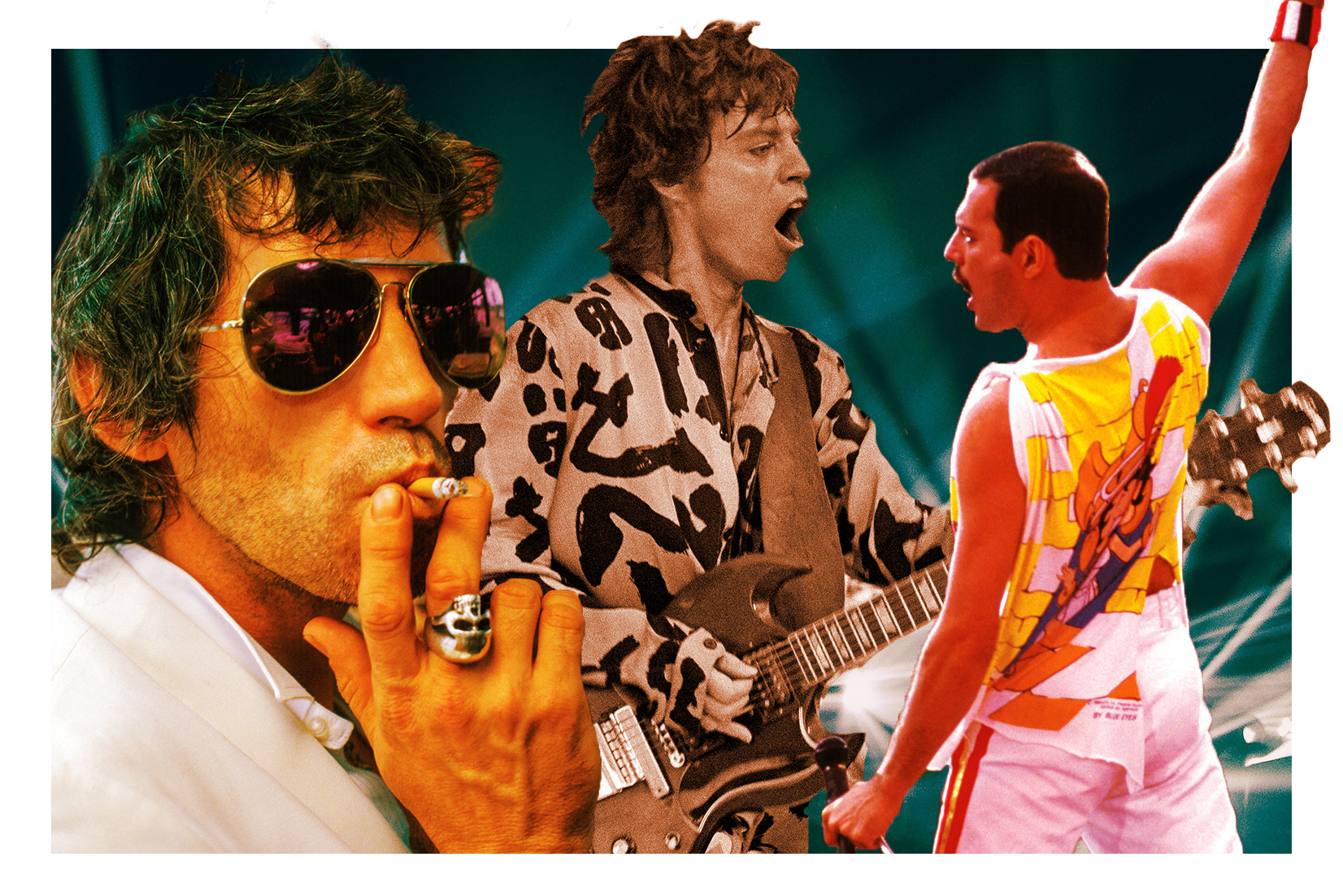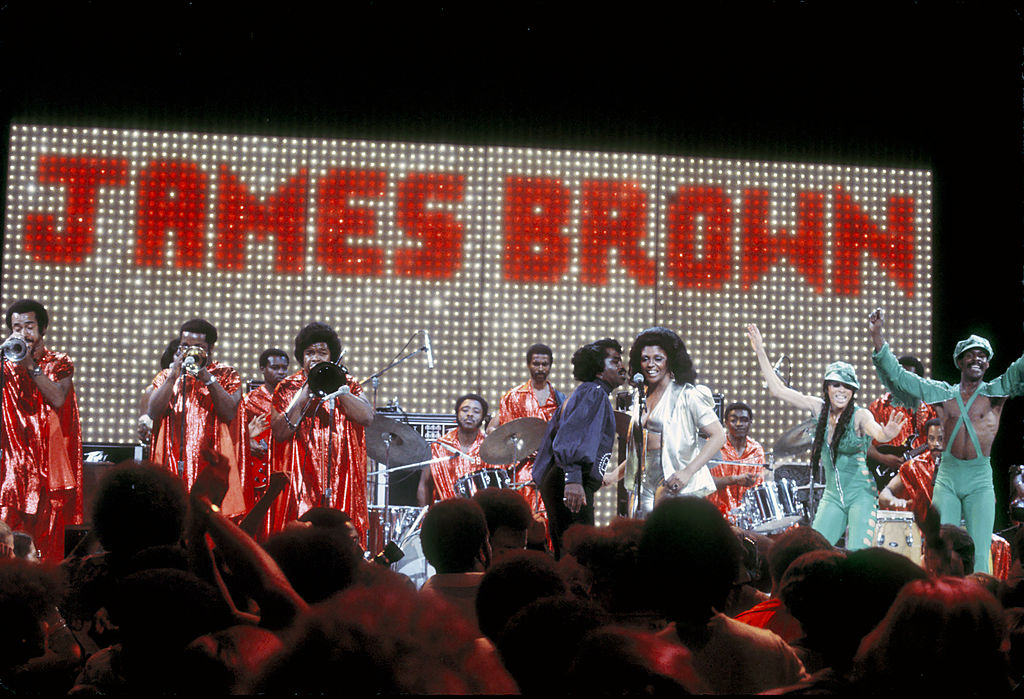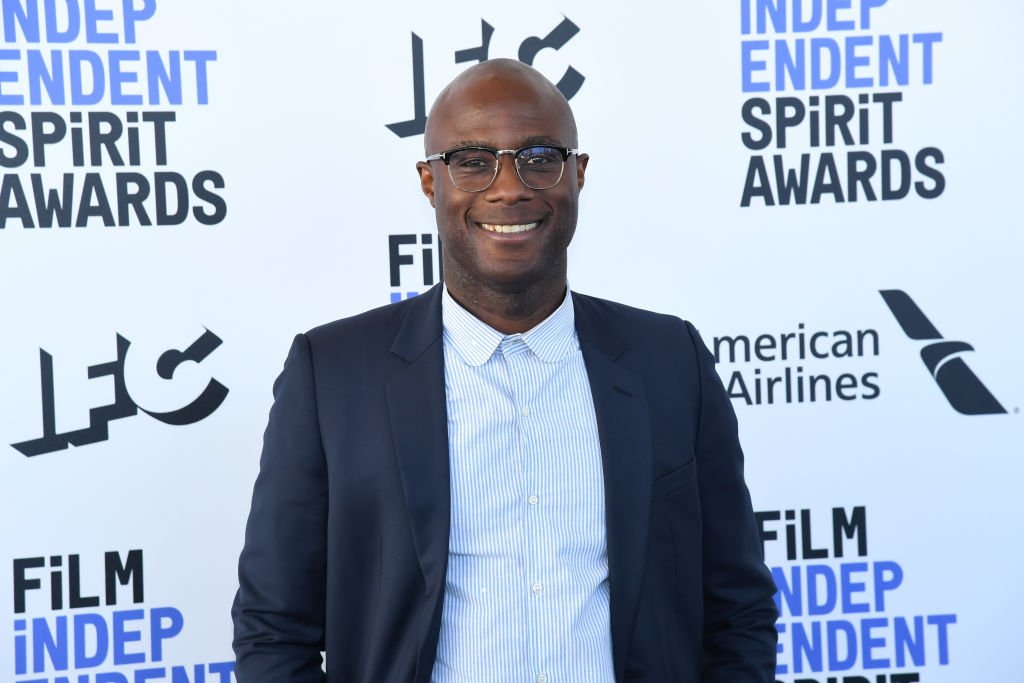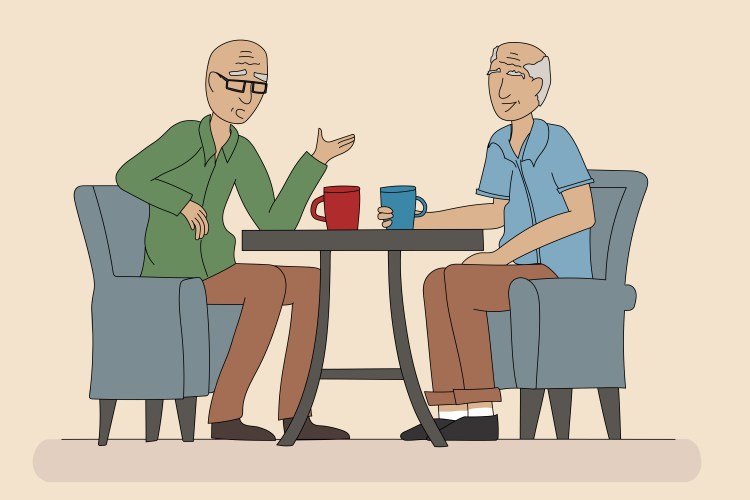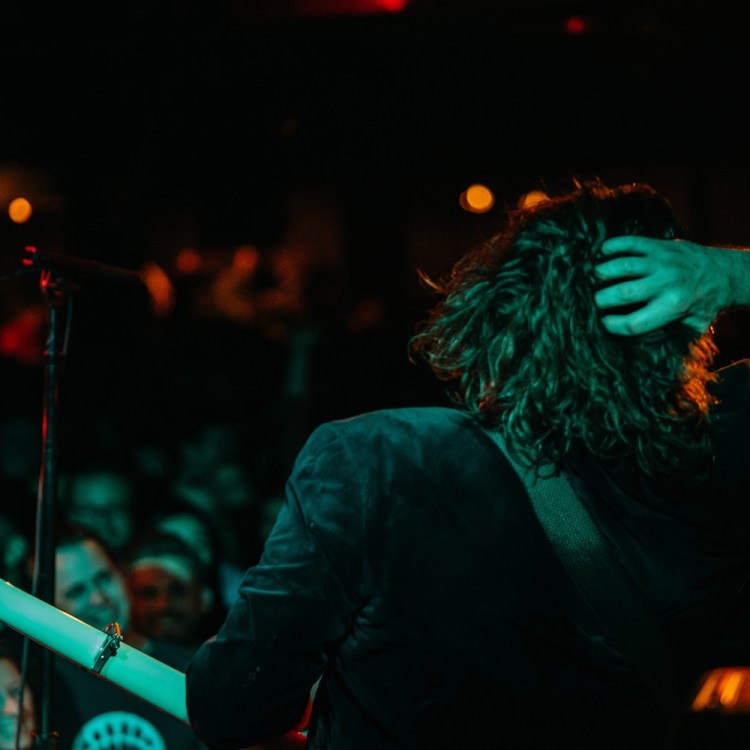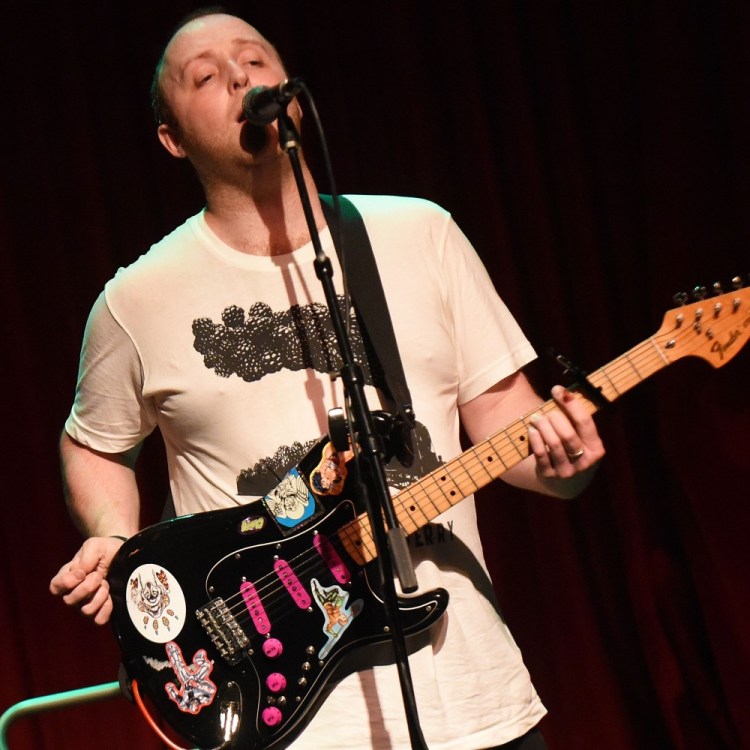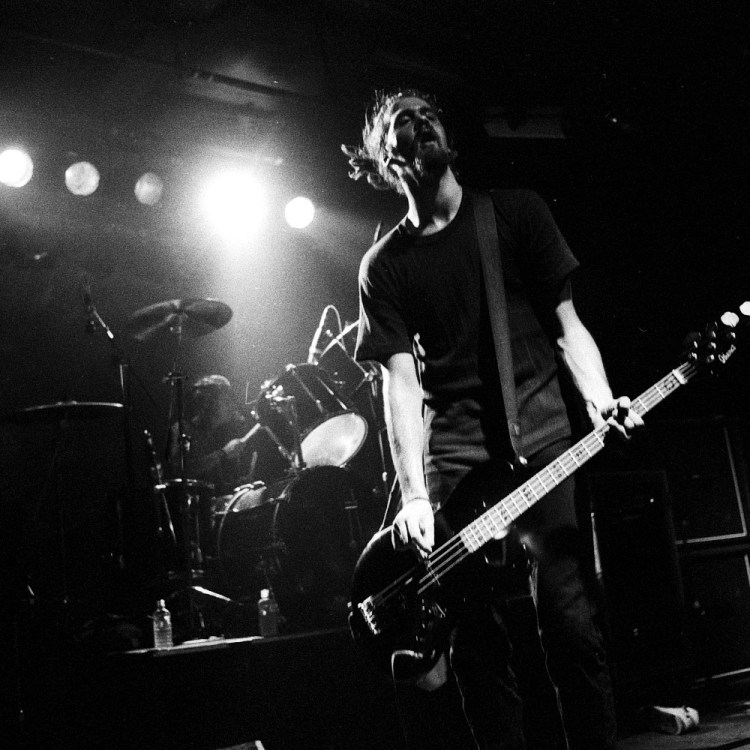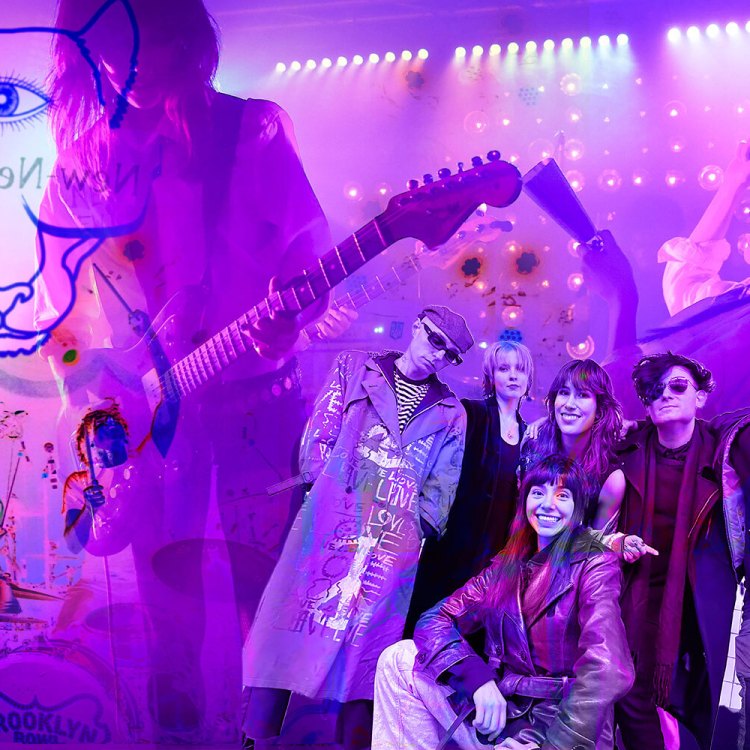If there’s one thing to know about Ahmir “Questlove” Thompson, it’s that he doesn’t have time to do things just for the hell of it. The musician, Tonight Show bandleader, producer, DJ, best-selling author, podcast host and Academy Award-winning director is so busy, as a matter of fact, that he’s dead serious when he tells me he’s currently all booked up for the next seven years. (If you’ve got a gig for him, you’d better have an idea of what your 2030 is looking like.)
And yet, despite the fact that there quite simply isn’t enough daylight for him to pursue every pet project related to his many, many interests, Thompson makes the time for them because he’s passionate about art of all kinds — whether it’s musical, cinematic, culinary, literary or comedic — and he hopes to inspire that same passion in everyone else. That’s why, as of this morning, he’s officially back with another season of his Shorty Award-winning YouTube series Quest for Craft. The show, which is presented in conjunction with The Balvenie, features Thompson sitting down with creatives from all fields at New York’s legendary Electric Lady Studios to discuss their process and the way they’ve honed their craft.
Last season featured Thompson in conversation with Michael Che, Jimmy Jam, Malcolm Gladwell and Patti Smith, and this new batch of episodes boasts chats with producer Mark Ronson, ballet dancer Misty Copeland, author (and quintessential New York City character) Fran Lebowitz and Saturday Night Live‘s Kenan Thompson. (You can stream all of the episodes here.) We caught up with him recently at The Parlour Room to talk about Quest for Craft‘s second season and learn a bit about his own creative process.
This interview has been edited and condensed for clarity.
InsideHook: Tell me a little bit about the process that you have for selecting the guests for this show. Do you have like a master list of people that you’re dying to talk to? How does that work?
Questlove: Well, I guess the first common denominator is that I’m actually friends with those people. So it makes it easier to ask. I’ve been in the business for 30 years now, so I’m always having social gatherings and those things. But I think very specifically why I chose them, just for the purpose of what this show is about. I know oftentimes people don’t like it when you have a sledgehammer of a lesson in the back. Like, whatever I do, I try to teach a lesson and the whole goal was like, keep it entertaining.
I’m about creating platforms that aren’t necessarily available. Like if you Google like “How to be creative?” there’s instructional videos on YouTube, but I think it’s actually better if it comes from someone that you know. Like, if David Byrne were to have this platform or something like that, I would have been like, “Sign me up.” So I think that for specifically what we needed for this episode, for instance, Fran [Lebowitz] was chosen because oftentimes you’re told environment has to do a lot with your creativity. Now, normally when someone gives me an environment example, it’s always like… a lot of my writer, screenwriter friends, they always have the proverbial cabin upstate or somewhere that’s far away and isolated. So some people need to be isolated. Chris Blackwell has a really nice enclave of an environment in Jamaica, where songwriters go and they want to feel with comfort and that sort of thing. So I knew with Fran, at least, that what defines her is New York City, and I always wondered like, “Well, if we took Fran out of New York City and put her in Atlanta, say, would that define her?” It’s almost like I see Fran as a fixture of New York City more than a human being, so she’s like unique in that thing.
I know that being friends with Mark Ronson for over 20 years, seeing him from carrying people’s crates of records to now the go-to guy that we ask to do these big projects. So to see somebody going through an evolution and kind of living in a place of yes. Like trying new things out, like you started out as a DJ and now, “Oh, I have magical powers to score movies, and now I have the magical powers to create this particular sound.” And I’ve known Misty [Copeland] just from like our friend circles, she and I had friends in common, but she’s the one whose story I knew of the least, and so kinda coming in the door, I already had my preconceived notions of ballerinas, like I was expecting, “I started the age of six and I went to this hoity-toity dainty school,” and it was just complete opposite. She started super late at 13, which she jokes that’s like geriatric for ballerinas. And she learned on a basketball court, like an asphalt basketball court, which is damaging to your toes. And so like each person has a different environment.
And I chose Kenan [Thompson] only because like I think people are under the impression because Eddie Murphy’s such an example of that show, which is basically give us three to five years and then leave this platform and catapult to the stars. And I love the fact that he’s not going for the brass ring of the Murphy route and that he knows that the best version of himself is the ensemble version. And I don’t think there’s anything wrong with that too. Like people tend to think that like, growing and sort of the metamorphosis means the caterpillar to the butterfly thing. But I think Kenan’s also a great example of how to get better with time, sort of coasting and doing the same thing. So I went for very specific situations.
Whitney Turns Heartache Into Pure Pop Bliss
The Chicago group returns with the surprisingly optimistic “SPARK”You mentioned the Fran episode and that idea of environment informing a person’s work. I’m curious, with your own creativity, you obviously travel all the time. Do you find when you go from place to place like that your environment impacts your process?
Yeah. So here’s the weird thing. So we were working on our ninth record, Game Theory. This is the spring of 2005. And I told my managers that, “Yo, man, let’s do something different. Let’s go for a different sound.” And we were like, “So this means that we leave Philadelphia.” We were just looking at the map to see like, “Where should we go?” And we were like, “You know what? New Orleans is probably the last bastion of an original American city that’s connected to a very specific type of music culture.” Over there, there’s line bands, there’s bounce music, there’s zydeco, there’s jazz. There’s four different cultures in New Orleans. So we took our record budget and we went and rented two houses down there. We decided, “Okay, we’re gonna start in the late summer, so let’s just go on tour real quick, make some quick money.” And we were all ready to do it, and literally our last night in Portugal, our flight was canceled, ’cause we heard that there was gonna be a rainstorm in New Orleans, so we put it off and that was Hurricane Katrina. So cut to us having to sort of think quick on our toes, and we never wound up going. Part of me is wondering, “What type of album would we have made had we did that relocation for a year in New Orleans and recorded the record, as opposed to what we wound up doing in Philadelphia?” However, yeah, I believe that environment is really important, even for me, every studio that I go to, I like studios that are not structurally damaged, but I don’t like it too comfortable. I got people that they have to have the bouquet arrangements, the charcuterie, the fresh cut fruit and all that stuff. No, I like no comfort inside the studio. I need to feel like it’s a struggle. Or maybe it just needs to look like a childhood bedroom, if that makes sense.
Having all these conversations with these various creatives for this, did it impact or influence your own creative process at all? Like hearing things from these people, was there anything that changed your own perspective?
If you look at everything I do, there’s always some sort of hidden educational factor in there, and I think a lot of the times, at least for the first four years of my career, let’s just say that maybe I would often freak out my friends like other musicians, other producers, MCs or singers. I would freak them out because I wouldn’t turn off. Like, literally, one of them was like, “Yo, do you ever just have normal conversations or is everything about like, ‘Where did you buy that record from?’ or ‘What do you think about this drummer?’ Can you just be normal?” And even though I say that jokingly, that was sort of like an issue like we had to fight. So I decided maybe at least 10 years ago, like I need an excuse to nerd out on everybody I grew up listening to and my contemporaries. I need a legitimate platform that allows me to do that so that I don’t freak them out too much. So I think that’s where the book writing came into play, and I think that’s where Questlove Supreme the podcast comes into play. Where else would I be able to ask Jimmy Jam six hours worth of questions? And this is also the same thing. I love the commonality of creativity and showing people that. Last year, I learned that the medical world, they wanted an audience with me, and I was like, “Well, why?” It’s like, “Well, we do creative things too,” and I was like, “In medicine?” It’s like, “Yeah, we have to figure out new potions, new techniques of operating like… We like creativity too.” I never once thought like, oh, even in the medical world these rules apply as well.
I read an interview you did recently where you were talking about sketching and vision boards that you put together. When inspiration strikes, is that something that you’re approaching from a specific standpoint of like, “Okay, I’m focusing on this medium,” or is it sort of like one kind of touches the other?
I learned the power of meditation in the pandemic, in early 2020. And then I had to learn different levels of it, and one that my ex told me that there’s ways to meditate without necessarily having to sit still and chant or that sort of things. And so she got me into this fun space where every Sunday, for like four hours, she and I would just get a grip of water paints, colored pencils, ink, gajillion magazines, glue, scissors, and we were just — we were in third grade. Some days it would be like do collages or not a vision board, but I’d just do collages, and other days, especially when I’m flying, I’ll just mindlessly sketch for some reason, and I have no plan or I don’t know what it is, but I’ll just mindlessly sketch. I feel [the same way with] sketching and driving. When I read books, sometimes I’ll do the audio version, so the distance from my apartment to my farm, is like, with traffic maybe kissing under an hour or so. I think with driving, I’m not one of those drivers that can chew and walk at the same time, so talking to people and “Will y’all be quiet back there?” I’m very hyperfocused with driving. So I think that causes me to listen to music different and listen to books and podcasts way different. So I feel like I’m at my complete 100% attentive, maybe because driving’s such a — it’s not a fight or flight situation, but I mean, it is a situation where one false move could mean disaster. So I think because I’m so aware that that’s a level of meditation in which I can absorb information better that way, than say, if I’m just at home reading on the bed and that sort of thing, so yeah, with driving, I do that. And yeah, once or twice a weekend, I’ll spend two hours just mindlessly sketching.
You’re obviously constantly working on so many different projects across different mediums. What is your secret to time management? Because it seems like there’s just not enough hours in the day for you to be doing everything you’re doing.
Okay. [laughs] Pre-2017, my life coach and my ex, they nicknamed me “25.” 25 hours a day, eight days a week. And they thought I was the most boring person on earth, even though I’m like, “But I’m doing the things that I love to do!” But it’s just that I think I came from an environment in which the narrative of hard work gives you reward and probably the most important lesson that I learned in the pandemic is that 90% of everything that our parents taught us and that our grandparents taught us and that their grandparents taught them is incorrect. So yeah, I’m admitting that the once-proud, 19-jobs Questlove is kind of saying, “No, the exact opposite is really, that’s where the magic is.” So having tested that theory and found it to be true, we’re suddenly doing nothing [during the pandemic], and sitting there and doing nothing suddenly opens up the floodgates. I’m just like, “Wow. As calculating as I was, and ‘Okay, from 6 to 12, I work on this, and then I’m gonna da da da da, and then life will happen,’” to do that and suddenly go to effectively doing nothing, and then suddenly the paradigm shift for where my life went, it was like, “Oh, I gotta do nothing more. I gotta take time out just to sit here and do nothing. And then ideas, more ideas come.” And so what’s weird is that I adapted the do nothing thing, and then the entire world opened, and now I’m kind of back at square one again because now I’ve got… [laughs]
Legendary Photographer Denis O’Regan on the Secret to Shooting Rock Stars
It turns out capturing icons like The Rolling Stones, David Bowie and Queen requires a bit of finesseYou gotta start doing stuff again. [laughs]
Right. Literally, seriously, like now I had… Like, this is my calendar. [He holds up his phone to display a color-coded spreadsheet in which seemingly every hour of every day is blocked out.]
Oh my god.
Like literally, all that purple references everything I have to do. And so, right now, if I just let everything that I got involved in play out, I’m effectively working till 2029. So I believe that I’m gonna get a third chance at this, and I’m gonna figure out how to do nothing and how to say satisfied as a creative without having to bring every bit of drop out of it.
You’ve been interviewed a million times, so you’ve got plenty of experience talking to the press. Do you find your experience being on that side of the interview, does that inform your own interview style when you’re talking to these people on Quest for Craft, or is it just something that you cultivated on your own?
No, that’s naturally just me. Probably in the beginning, probably the elements I’ve learned that Questlove the interviewer should do and Ahmir Thompson the person should not do, just don’t talk over the guest, listen more than you talk and just go by, “Yes and.” There’s so many questions to ask. So I think it really wasn’t that hard of an adjustment. I didn’t think, “I’m so nervous, I don’t know how to do an interview.” And the rule is like, we never have an official start. They do the slate and we sit down and I just tell people, “Just start camera rolling, ’cause I assure you the second that we sit down, that the conversation’s going to start.” Yeah. As long as I’m not talking over my guest, I’m always gonna have a question. You’ll have an answer. And I’m certain that answer will lead to another question and so on.
Well, sort of a broad question, and you touched on it a little bit earlier, but ultimately, what do you hope that people get out of this show? Like if somebody came up to you and said, “This is what this meant to me, this is what it did for me,” what would that be?
Yeah. I feel like there needs to be — again, I’m only trying to provide the service that I get asked the most. Just in the last 30 years, it’s always been, “What advice can you give me? What should I tell my kid? There’s this kid in my church who plays drums, and what advice should I give him?” And I think after seven or eight years, I just got tired of saying the usual cliches, “Yeah, just keep at it, hanging there and have fun.” I didn’t want to do the Creativity for Dummies thing either. So again, there’s a lot of instructional content online. But I think that unless it comes from someone that’s been there… If I could have gotten singing lessons from Babyface or had real interaction with Lionel Richie about songwriting or Helen Reddy about where she grew up listening to records, I think that that goes the extra mile. So really, I guess the only paradigm shift I hope to see is that maybe more people in my position take that position because I’m also at the age now, there’s a lot of eye-rolling, a lot of complaining. “Oh man, music sucks now,” or “Man, it ain’t like how it was,” and all the time I’m like, “That’s our fault.” And I know that I’m effectively using my resources, using my time. Like when I’m doing a DJ gig, I’m trying to teach you guys the history of music in three hours. Praying to God that you’re all Shazaming what I play. It’s not to play higher moral ground or whatever, but it’s just like if I expect anyone born in the aughts to produce anything desirable to the level of which I like it — ’cause we have a lot distracting and competing, like the need to be famous more than the need to be talented, that sort of thing — then this is not gonna change the world. But at least if I could be part of the sea change, great.
This article was featured in the InsideHook newsletter. Sign up now.
